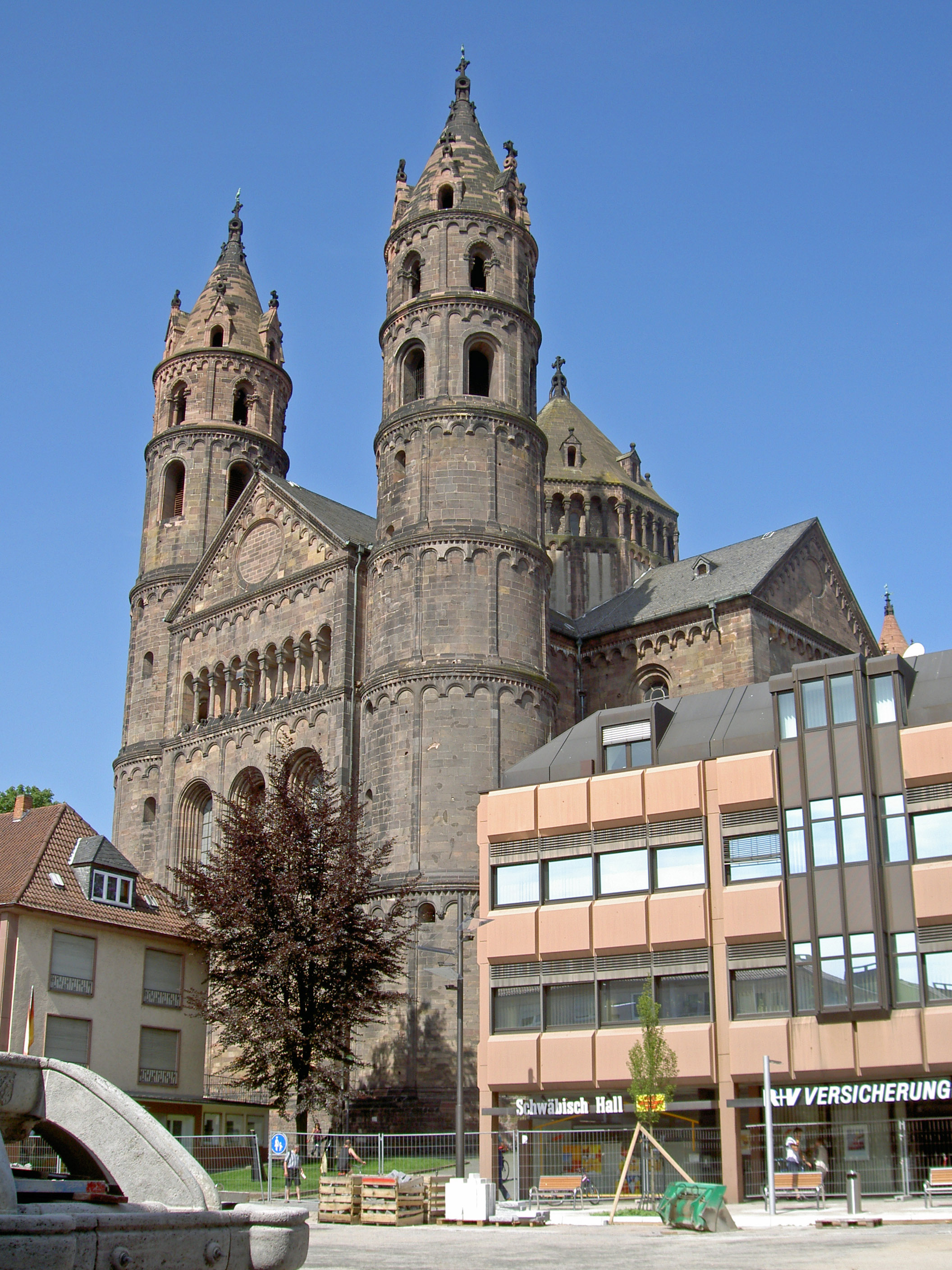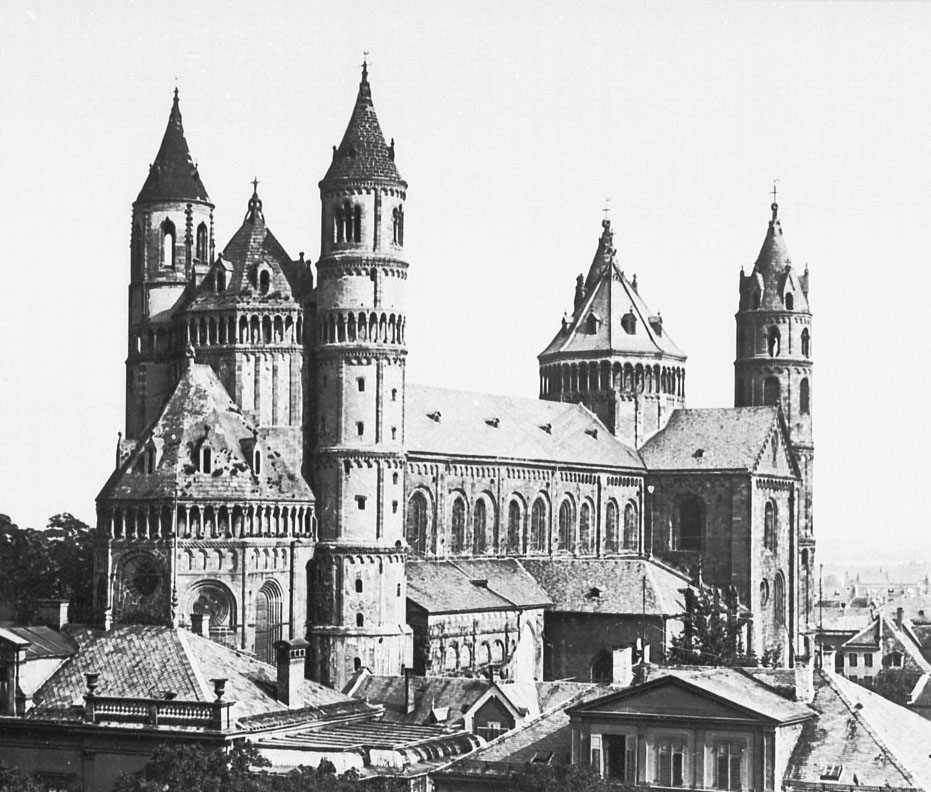|
Boris Böhmann
Boris Böhmann (born July 19, 1964) is a German conductor and composer. He was born in Worms am Rhein, was musical assistant at his home church, Worms Cathedral, between 1987 and 1990. His studies in Catholic theology at Johannes Gutenberg University in Mainz were followed with studies at the College of Music in Detmold (church music and conducting) between 1988 and 1993. The "Vocal Ensemble at St. Martin" in Worms was founded in 1990 on his initiative, and he has been musical director of the ensemble until 2004. After his artistic A examination in 1993, he was appointed choir director at the Papal Basilica of St. Mary's in Kevelaer. Here he conducted the different ensembles of music at the basilica, consisting of more than 250 members (two children's choirs, the youth school, choir, orchestra, choral school and winds). Between 2000 and 2001, Boris Böhmann was chairman of the Association of Church Musicians in the bishopric of Münster. Since 1996, he has been a member of the ... [...More Info...] [...Related Items...] OR: [Wikipedia] [Google] [Baidu] |
Worms, Germany
Worms (; ) is a city in Rhineland-Palatinate, Germany, situated on the Upper Rhine about south-southwest of Frankfurt, Frankfurt am Main. It had about 84,646 inhabitants . A pre-Roman foundation, Worms is one of the oldest cities in northern Europe. It was the capital of the Kingdom of the Burgundians in the early fifth century, hence is the scene of the medieval legends referring to this period, notably the first part of the ''Nibelungenlied''. Worms has been a Roman Catholic Prince-Bishopric of Worms, bishopric since at least 614, and was an important Count palatine, palatinate of Charlemagne. Worms Cathedral is one of the imperial cathedrals and among the finest examples of Romanesque architecture in Germany. Worms prospered in the High Middle Ages as an imperial free city. Among more than a hundred imperial Diet (assembly), diets held at Worms, the Diet of 1521 (commonly known as Diet of Worms, ''the'' Diet of Worms) ended with the Edict of Worms, in which Martin Luther wa ... [...More Info...] [...Related Items...] OR: [Wikipedia] [Google] [Baidu] |
Worms Cathedral
St Peter's Cathedral (German: ''Wormser Dom'') is a Catholic Church, Roman Catholic church and former cathedral in Worms, Germany, Worms, southern Germany. The cathedral is located on the highest point of the inner city of Worms and is the most important building of the romanesque architecture, Romanesque style in Worms. It is closely associated with Burchard of Worms, Bishop Burchard and the high point of Worms' history in the 12th and 13th centuries. It was the seat of the Catholic Bishopric of Worms, Prince-Bishopric of Worms until its extinction in 1802, during German mediatization, German mediatisation, whose prince-bishops resided next door in the Bischofshof palace. After the extinction of the bishopric, it was reduced in status to that of a parish church; however, it was bestowed the title of minor basilica in 1925 by Pope Pius XI. Most of the cathedral was finished by 1181, however the west choir and the Vault (architecture), vaulting were built in the 13th century, t ... [...More Info...] [...Related Items...] OR: [Wikipedia] [Google] [Baidu] |
Bishopric Of Münster
In church governance, a diocese or bishopric is the ecclesiastical district under the jurisdiction of a bishop. History In the later organization of the Roman Empire, the increasingly subdivided provinces were administratively associated in a larger unit, the diocese (Latin ''dioecesis'', from the Greek term διοίκησις, meaning "administration"). Christianity was given legal status in 313 with the Edict of Milan. Churches began to organize themselves into dioceses based on the civil dioceses, not on the larger regional imperial districts. These dioceses were often smaller than the provinces. Christianity was declared the Empire's official religion by Theodosius I in 380. Constantine I in 318 gave litigants the right to have court cases transferred from the civil courts to the bishops. This situation must have hardly survived Julian, 361–363. Episcopal courts are not heard of again in the East until 398 and in the West in 408. The quality of these courts was l ... [...More Info...] [...Related Items...] OR: [Wikipedia] [Google] [Baidu] |
Prelate
A prelate () is a high-ranking member of the Minister (Christianity), Christian clergy who is an Ordinary (church officer), ordinary or who ranks in precedence with ordinaries. The word derives from the Latin , the past participle of , which means 'carry before', 'be set above or over' or 'prefer'; hence, a prelate is one set over others. The archetypal prelate is a bishop, whose prelature is his particular church. All other prelates, including the religious institute, regular prelates such as abbots and major superiors, are based upon this original model of prelacy. Related terminology In a general sense, a "prelate" in the Catholic Church and other Christian churches is a bishop or other ecclesiastical person who possesses ordinary authority of a jurisdiction, i.e., of a diocese or similar jurisdiction, e.g., ordinariates, apostolic vicar, vicariates/exarch, exarchates, or territorial abbacies. It equally applies to Cardinal (Catholic Church), cardinals, who enjoy a kind of ... [...More Info...] [...Related Items...] OR: [Wikipedia] [Google] [Baidu] |
Freiburg Minster
Freiburg Minster ( or ) is the cathedral of Freiburg im Breisgau, southwest Germany. The last duke of Zähringen had started the building around 1200 in romanesque style. The construction continued in 1230 in Gothic style. The minster was partly built on the foundations of an original church that had been there from the beginning of Freiburg, in 1120. In the Middle Ages, Freiburg lay in the Diocese of Konstanz. In 1827, Freiburg Minster became the seat of the newly established Catholic Archdiocese of Freiburg, and thus a cathedral. Architecture The Swiss historian Jacob Burckhardt once said that the church's 116-meter tower ''will forever remain the most beautiful spire on earth''. The tower is nearly square at the base, and at its centre is the dodecagonal star gallery. Above this gallery, the tower is octagonal and tapered, and above this, is the spire. It is the only Gothic church tower in Germany that was completed in the Middle Ages (1330), and has lasted until the p ... [...More Info...] [...Related Items...] OR: [Wikipedia] [Google] [Baidu] |
Freiburg Cathedral Boys' Choir
The Freiburg Cathedral Boys' Choir (Freiburger Domsingknaben) is one ensemble of the "Freiburg Cathedral Music" in southwest Germany, which has a history that can be traced back over eight centuries. It is directed by Boris Böhmann and composed of about 55 boys and 25 adult voices. Historical overview As early as the 13th century, there is evidence of a Latin school that played an important role in the formation of choral music at the Freiburg Cathedral. Since the 16th century, polyphonic music for the boys’ choir at the cathedral has been passed down in written form. The boys sang at early mass, at vespers, and on Sundays and holidays, often together with the Cathedral Chamber Choir, into the 20th century. During the Nazi regime, the choirs were dissolved, only to be officially reinstated on the Feast of All Saints in 1970. This was accomplished by the director of music and prelate, Dr. Raimund Hug, whose 30-year direction brought new international acclaim to the choir. Since ... [...More Info...] [...Related Items...] OR: [Wikipedia] [Google] [Baidu] |
Choirs
A choir ( ), also known as a chorale or chorus (from Latin ''chorus'', meaning 'a dance in a circle') is a musical ensemble of singers. Choral music, in turn, is the music written specifically for such an ensemble to perform or in other words is the music performed by the ensemble. Choirs may perform music from the classical music repertoire, which spans from the medieval era to the present, or popular music repertoire. Most choirs are led by a conductor, who leads the performances with arm, hand, and facial gestures. The term ''choir'' is very often applied to groups affiliated with a church (whether or not they actually occupy the quire), whereas a ''chorus'' performs in theatres or concert halls, but this distinction is not rigid. Choirs may sing without instruments, or accompanied by a piano, accordion, pipe organ, a small ensemble, or an orchestra. A choir can be a subset of an ensemble; thus one speaks of the "woodwind choir" of an orchestra, or different "choirs" of ... [...More Info...] [...Related Items...] OR: [Wikipedia] [Google] [Baidu] |
List Of 20th Century Classical Composers
This is a list of composers of 20th-century classical music 20th-century classical music is Western art music that was written between the years 1901 and 2000, inclusive. Musical style diverged during the 20th century as it never had previously, so this century was without a dominant style. Modernism, i ..., sortable by name, year of birth, year of death, nationality, notable works, and remarks. It includes only composers of significant fame and importance. The style of the composer's music is given where possible, bearing in mind that some defy simple classification. Names are listed first by year of birth, then in alphabetical order within each year. The 20th century is defined by the calendar rather than by any unifying characteristics of musical style or attitude, and is therefore not an era of the same order as the classical or romantic. However, the century can be divided into modern and postmodern eras that overlap and can be defined more by differences in attitude than ... [...More Info...] [...Related Items...] OR: [Wikipedia] [Google] [Baidu] |
German Male Conductors (music)
German(s) may refer to: * Germany, the country of the Germans and German things **Germania (Roman era) * Germans, citizens of Germany, people of German ancestry, or native speakers of the German language ** For citizenship in Germany, see also German nationality law **Germanic peoples (Roman era) * German diaspora * German language * German cuisine, traditional foods of Germany People * German (given name) * German (surname) * Germán, a Spanish name Places * German (parish), Isle of Man * German, Albania, or Gërmej * German, Bulgaria * German, Iran * German, North Macedonia * German, New York, U.S. * Agios Germanos, Greece Other uses * German (mythology), a South Slavic mythological being * Germans (band), a Canadian rock band * "German" (song), a 2019 song by No Money Enterprise * ''The German'', a 2008 short film * "The Germans", an episode of ''Fawlty Towers'' * ''The German'', a nickname for Congolese rebel André Kisase Ngandu See also * Germanic (di ... [...More Info...] [...Related Items...] OR: [Wikipedia] [Google] [Baidu] |
Living People
Purpose: Because living persons may suffer personal harm from inappropriate information, we should watch their articles carefully. By adding an article to this category, it marks them with a notice about sources whenever someone tries to edit them, to remind them of WP:BLP (biographies of living persons) policy that these articles must maintain a neutral point of view, maintain factual accuracy, and be properly sourced. Recent changes to these articles are listed on Special:RecentChangesLinked/Living people. Organization: This category should not be sub-categorized. Entries are generally sorted by family name In many societies, a surname, family name, or last name is the mostly hereditary portion of one's personal name that indicates one's family. It is typically combined with a given name to form the full name of a person, although several give .... Maintenance: Individuals of advanced age (over 90), for whom there has been no new documentation in the last ten ... [...More Info...] [...Related Items...] OR: [Wikipedia] [Google] [Baidu] |




